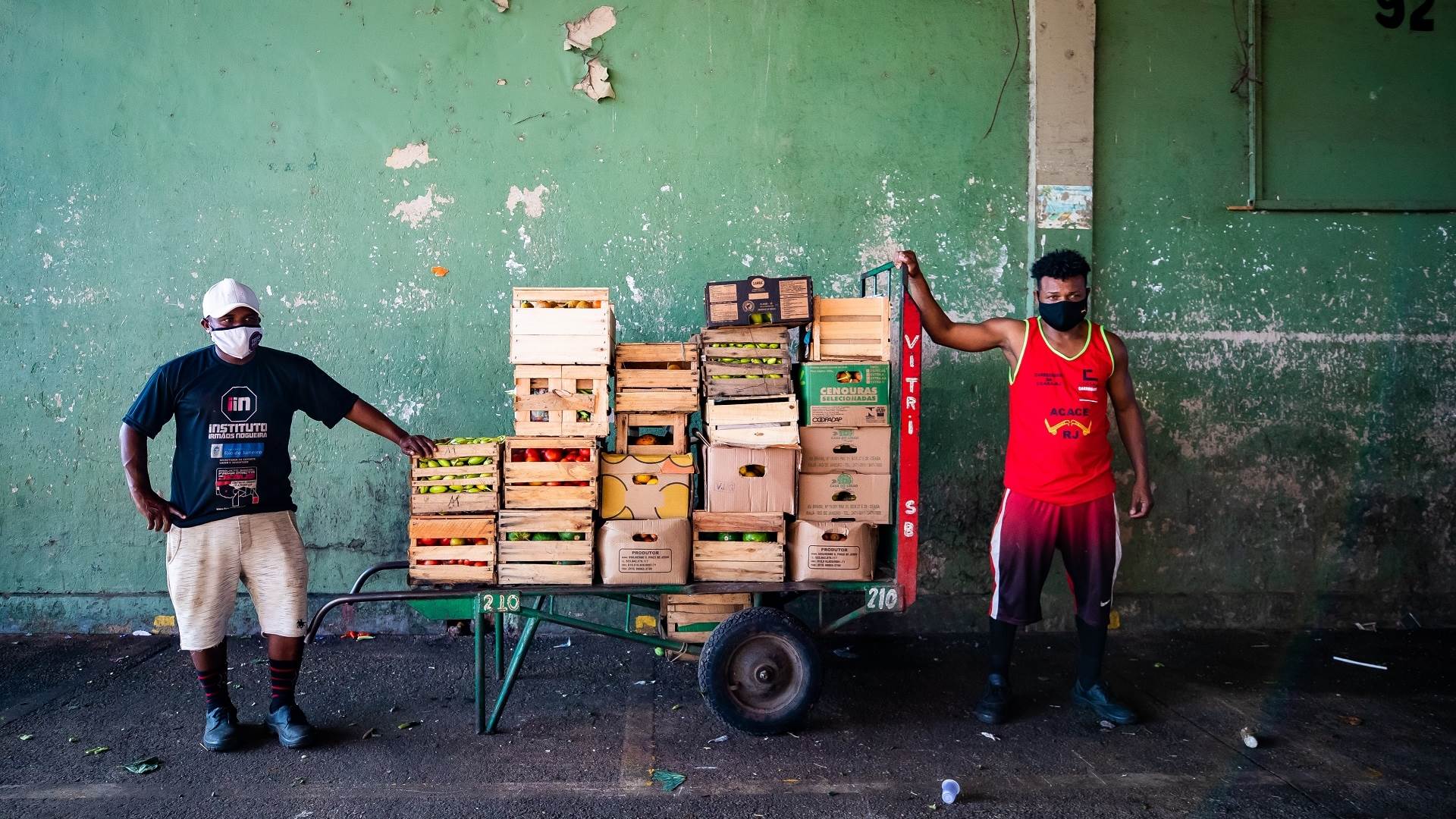“Less Beef, More Vegetables”… Inflation Threatens Food Security in Brazil
In Brazil, about 116.8 million people live in a state of food insecurity and 19 million endure hunger.
-

27.7 million Brazilians live below the poverty line
Contrary to the usual, Marli Fumagalli looks at prices carefully as she shops for food in a market in Brazil and says she follows, in such hard times like these, a diet of "less beef, more vegetables and lots of creativity."
Inflation is running high in a country of 213 million people, 13% of whom live below the poverty line, with widening inequalities due to the health crisis caused by COVID-19.
Many people like Fumagalli have changed the way they eat in order to cope with the higher prices.
"My bank account is always overdrawn," said Fumagalli, 69, who has 3 other members to feed, besides herself.
"I only have enough to buy inferior cuts of meat and use it as stuffing to make it go further," she said.
As of August, the consumer price index had risen 9.68% in the past 12 months, but food prices shot up by nearly 14% in that same period, according to government figures.
An economics professor at the Getulio Vargas Foundation, Joelson Sampaio, said, "Food inflation is exerting pressure on family budgets since 2020, especially lower-income people.”
The Foundation's figures from April show that 27.7 million people in Brazil, which constitute 13% of the population, live below the poverty line.
The proportion of people living in such conditions is up by 11% in 2019.
Red meat is a treat
At the market where Fumagalli shops, vendor Jose Guerreiro says he is offering a lot less meat and actually replacing it with chicken. "I try to avoid raising prices by switching suppliers, but it is pointless. It is a snowball,” Guerreiro said.
Prices of red meat have gone up three times that of the overall inflation rate. That means a lot of people have stopped buying it, even though Brazil has more cattle than any other country in the world and is its main beef exporter.
A survey by pollster Datafolha found that 85% of Brazilians have reduced their consumption of some kind of meat this year, and 67% ate less red meat.
Around 35% ate less rice and beans, which are staples in the Brazilian diet.
Under such circumstances, "the first reaction of consumers is to substitute. The second is to cut back, and the last is to rule out meat altogether," said Sampaio.
A poll in late 2020 by Rede PENSSAN, a network that does research on food insecurity in Brazil, which has a population of 213 million, showed that 116.8 million Brazilians were in fact suffering from some degree of food insecurity with 19 million enduring hunger.
Inflation and unemployment, which now stand at 14.1%, have actually aggravated the problem. Glaucia Pastore, a professor of food engineering at Campinas University, said that due to those two factors "the food that a large part of the population eats does not meet nutritional standards nor quantity."
And eating just enough to get by has consequences, he said.
"People are more likely to suffer from viral or non-transmissible chronic diseases such as diabetes, heart trouble, or others," said Pastore.
Opposition and government exchange blame
The opposition blames the high rate of inflation on right-wing President Jair Bolsonaro, yet the government says inflation is a result of higher international prices for foodstuffs.
Agribusiness consultant, Carlos Cogo, said that the most basic foodstuffs that are contributing to inflation are commodities sold in US dollars on the international market.
Rising commodity prices and the depreciation of the Brazilian real have led to higher inflation than the international average, said Cogo.
But there are other factors at play too, such as higher prices for fuel, which are up 41.3% in one year, and the historic drought that Brazil is enduring that has affected crops such as corn.
He predicted that pressure on food prices will continue at least until 2022-2023, which could force more Brazilians into hunger.

 4 Min Read
4 Min Read








